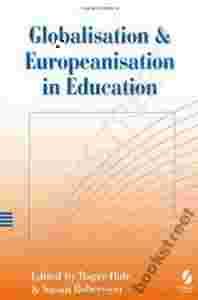|
This book grew out of the experience of a European
Union Thematic Network of the same title, and focuses on
aspects of the complex and varying relationships between
globalisation, Europeanisation and education. The volume
is divided into two parts: PART ONE: Governance and the
Knowledge Economy, focuses on how the discourses of a
Knowledge Economy and Lifelong Learning, and an emerging
functional and scalar division of the labour of
educational governance became central to the development
of a European Education Space (EES). Contributors
emphasise the role of the European Commission, and
especially the Lisbon agenda, in this process, and
consider the role of the Open Method of Coordination and
the Bologna Process in the construction of the EES. A
key theme linking Europeanisation to globalisation is
the prominence of the discourse of competitiveness, and
the role allocated to education in enhancing Europe's
ability to compete with the United States and Japan.
PART TWO: Citizenship, Identity and Language, looks at
the emergence of a new social model for Europe, this
time from the point of view of how it relates to the
development of individual capacities and citizenship,
and the role of intellectuals in this process. A second
major theme is the place, role and choice of languages,
and the impact of pressures from globalisation and
Europeanisation, at national and sub-national levels, on
language choice and teaching, taking into account both
'World Englishes' and Language Europe. Finally,
globalisation becomes the central issue in an analysis
of its different relationships with 'northern' (of which
European education policy is taken as the example) and
'southern' paradigms of educational development.
|
|

